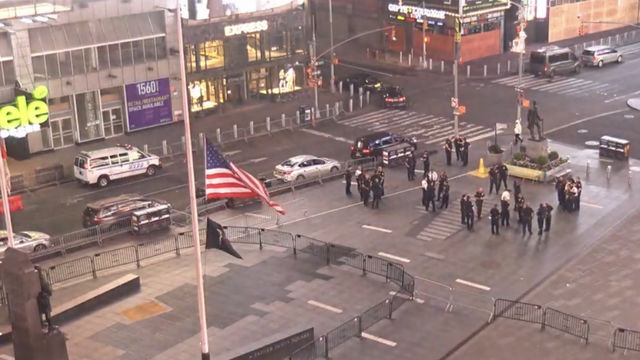
A Start: Rindon Johnson in Conversation with Aram Moshayedi
From: Aram Moshayedi
Date: Monday, March 30, 2020 at 1:42 PM
To: Rindon Johnson
Subject: A start
We just spoke on the phone and I embarrassingly started by asking how you were doing. It’s such a naïve question given the current circumstances. Admittedly, I’m writing now with a degree of apprehension, in part because of the issues I have with the crafting of one’s online persona and the demands for being public in this arena as some kind of proxy for relevance. Also, we seem to have entered into a moment where self-promotion suddenly adapted itself into digital opportunism. Amidst all else that’s going on, have you somehow been burdened by the same blockage?
From: Rindon Johnson
Date: Tuesday, March 31, 2020 at 12:55 AM
To: Aram Moshayedi
Subject: Re: A start
I guess I should preface that I did drink the Kool-Aid of the “father of VR” Jaron Lanier whose thoughts on most technology and social media are basically, run in the opposite direction. I’m still drinking that Kool-Aid actually so my usual blockage about the e-public self as a self-promoting content creating monster is now the size of a mountain. I do really struggle with the idea that many followers means relevance because relevance is just as slippery as any construct (time, space, blah, etc.) and in certain instances is it really wise to just be listening to any human body that has a lot of followers (is it really useful to look at any painting that’s considered valuable)? I’m more confused than usual because of the ready acceptance that you can replicate IRL social space on the internet. I always thought it was more interesting that the internet (and all of its pieces) are a completely different form of social space. Why call something an old thing to avoid having to wrestle with the parameters of a new thing (way of being)? One can’t pretend like they are constructing new spaces when they are just dragging along all the same shit from the old spaces....
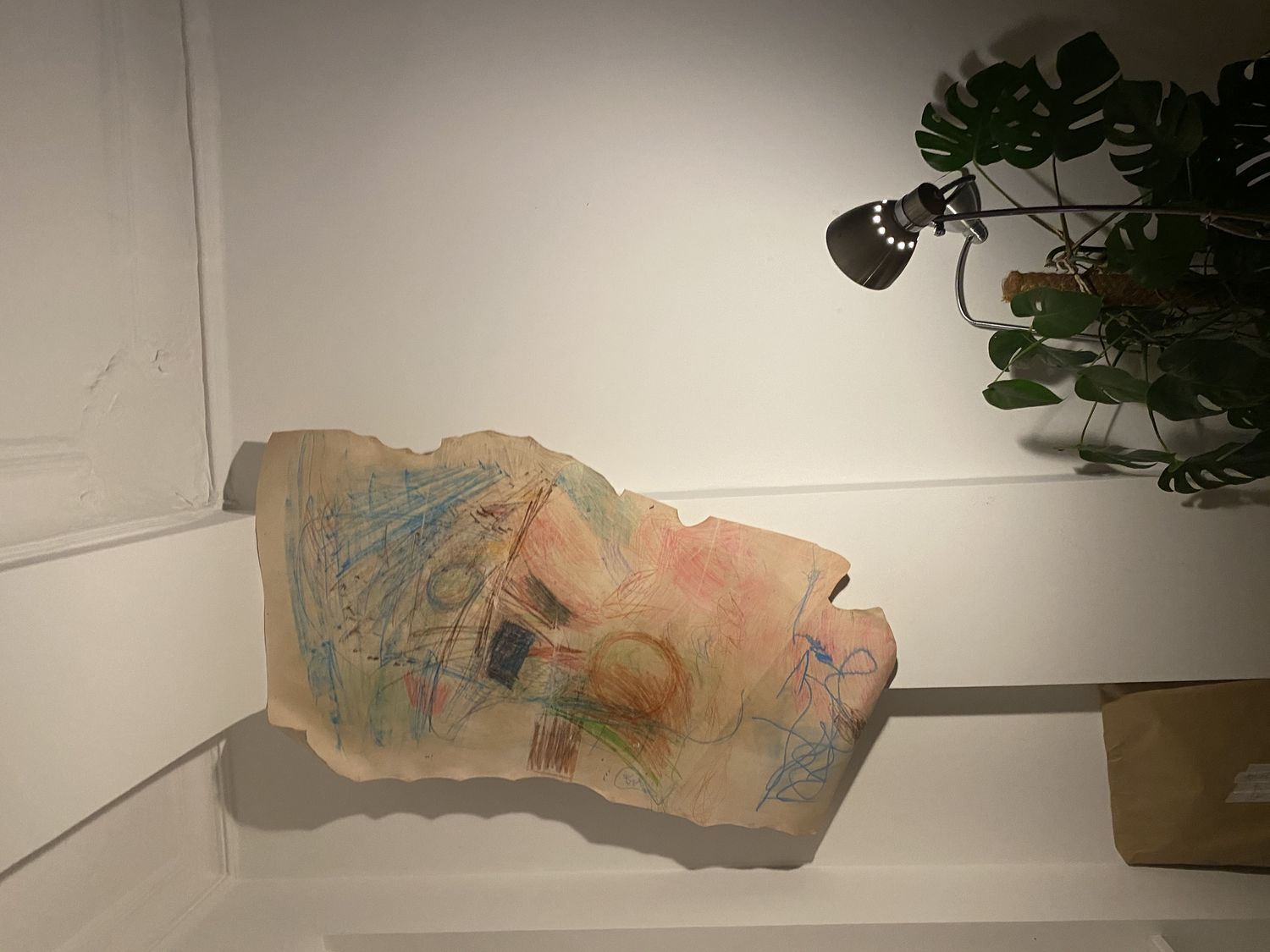
From: Aram Moshayedi
Date: Tuesday, March 31, 2020 at 4:45 PM
To: Rindon Johnson
Subject: Re: A start
Yes, I’ve noticed a handful of artists who just seem to carry on like business as usual. I’ve been taken aback by how little time was needed for some to adapt to this new, albeit temporary, reality. We also don’t know what impact there will be in the long term. I think because so many artists and writers and curators already spend so much of their time living online that this kind of full digital immersion didn’t feel weird or gross or alienating to some. But for others the difficulty to produce and to have thoughts about anything other than the current health crisis is debilitatingly real. It’s consuming and I’m a bit suspect of the tendency to adapt so easily without a moment to consider the changes. Maybe things will go back to being the same after this, or maybe they won’t. But what about processing this new reality before providing content and feeding the machine by, as you say, bringing in the same shit from the old. Like, how can someone respond to a given context when we are dealing with a type of mutation that is unknown? What gives an artist or a writer the authority to behave in such a way? Sure it’s a means of survival, but at what expense? There is a virus going around and you or a loved one might die from it. But there is also a financial system and an art market that is also going to claim quite a few casualties, and the urge to be seen at a moment like this is not about being a first responder (whose lives are actually in jeopardy) and instead seems motivated by the same old kind of competition that thrived in a hyperbolic system divorced from reality. Art was already troubled by this sickness well before the current pandemic and I don’t foresee a vaccine solving the problem. Could you imagine a scenario where the terrain will change in such a way that the strategy of non-participation can finally be appreciated for its truly beautiful attributes?
From: Rindon Johnson
Date: Wednesday, April 1, 2020 at 3:03 PM
To: Aram Moshayedi
Subject: Re: A start
I guess in that scenario then everybody's basic needs would have to be taken care of, so it would be some kind of quasi-utopia involving some sort of beautiful forms of localized government, food production, care systems and energy production. I bet the vegetables would taste amazing, I bet there would be community gardens and pools and schools and the health care would be very comprehensive, there wouldn't (neh couldn’t) be prisons because it would be obvious there is no true profit in taking someone out of the society to try and help them participate differently in the society. I bet the water would taste delicious. It might take a few weeks to get from one place to another place, I bet distance would change and so would our ideas about closeness (care), I bet everybody would have a nice pet and time to figure out their preferences. Wow. I can dream! One of my favorite artists Mladen Stilinović spoke a lot about laziness, about living as a form of making, and he was adamant about art's opposition to capitalism. I think about him all the time. He said at some point that "a true radical makes nothing." I have a few pieces called that after him, trying to think about how I can talk alongside him while still desiring things, lots of different things, steaks, a Dyson vacuum, a bigger apartment. I saw his work in grad school because he died right as I started and I mean damn he was flat footed (clear like walking into a sliding door): sleeping in the gallery and calling it Artist at Work (1978). He was also perfect and really funny and serious all at once. Anyway, “A true radical makes nothing” is my favorite title for anything. I think it's an important reminder not to will something into existence but to participate as a form (gesture) of willing (or to not participate as a form of both example and trust, rather, to actively be looking for the other (naw, new) thing by refusing any form of polarity). I'm not radical enough to make nothing but I'd really like to be. I'm also not naïve enough to say that not making something is the answer. In a lot of ways it seems to be a question of what you’re making and for whom you are making it. To be honest with you, Aram, I'm still learning about the art of saying no. When to say it, how and to whom.
I love this question: How can someone respond to a mutation that is unknown? I've been listening to a lot of Ursula Le Guin books and I think this core question of what is important and how do we assign value is slipping along in a lot of Ursula's writing. The Dispossessed, which I just finished, is all about the fact that true freedom is the freedom to change, and somehow it seems like not taking our time with what we put out right now as artists calcifies or almost dooms us to repeat our previous behavior. Change takes (requires) time and in this particular instance, when we won’t be changing alone, it seems like it might be really important to look around and see who needs what before making and sharing detritus from our own personal roller coasters of emotion. Saying no and meaning it involves a shift in what one desires. To stay quiet enough to see what is happening is a really big deal and a rejection. Very quickly many people whose situations were not precarious have found themselves in precarious positions, very quickly those who were in precarious positions found that precarity amplified and intensified, very quickly things stayed the same and they changed all at once. In how many ways will the inequalities commonplace to our market worship reveal themselves to be as sinister as we know and expected them to be? I guess I’m just trying to say maybe expression isn’t always the goal and I took a long while to say it.
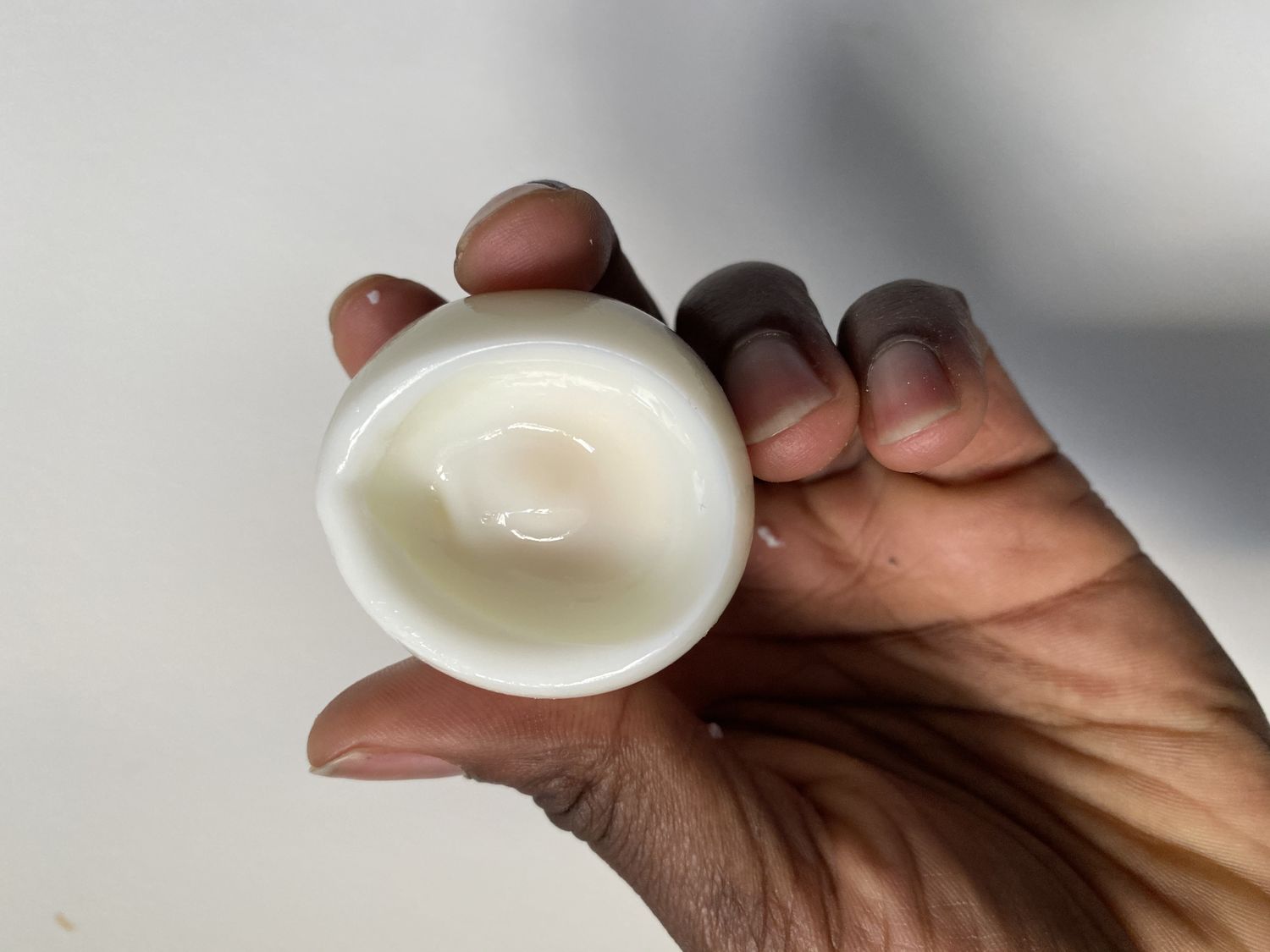
From: Aram Moshayedi
Date: Friday, April 3, 2020 at 7:04 PM
To: Rindon Johnson
Subject: Re: A start
Over the last few weeks, I’ve kept repeating to myself Douglas Huebler’s statement, “The world is full of objects, more or less interesting; I do not wish to add any more.” I realize it may not be the best moment to resuscitate the ideology of a late conceptualist, particularly given that so many people feel as if they finally have a voice or have finally achieved a level of visibility. But it’s worth asking, at what expense is the acquisition of voice and visibility? If, as you say, expression isn’t always the goal, then what are the alternatives that are viable and sustainable? The world that we’ll inhabit after this may be quite different from the one we left for quarantine, and I presume that we’re all thinking about how the imaginings produced in so-called isolation might take part in the world to come—through the circuit of gallery and museum exhibitions, public programs, and the like that will presumably be there waiting for us when this particular pandemic is behind us. I know some artists feel as if they’ve been robbed of an opportunity, that the art world they were promised has been taken away from them. Perhaps these artists weren’t already aware that the promise of art is a lie. Is that something you think about? Have you had to reassess the long-term strategies for survival in a context that has already proved itself to be quite unforgiving?
From: Rindon Johnson
Date: Monday, April 6, 2020 at 5:25 AM
To: Aram Moshayedi
Subject: Re: A start
What are the alternatives? Hmm, more questions. I’ll go around it.
You know this I’m sure but I’m really into Jack Whitten for many reasons but he often said that he took whatever ideas made sense to him no matter what. Let’s take that idea from Huebler, why not, no need to make more objects. Right on. Yes. Right and so what’s viable and sustainable, well I don’t know, let’s get through it. Let’s all get through it. I’m not sure what that means for each person, what kind of ways they get through but there’s lots of organizing and taking stock, people who could use funds if there’s spare, cancel the rent, cancel the mortgages, cancel it, forgive it. Then there’s also this other thing: maybe don’t restrain from manifesting the better reality. That’s a form of creating I’m really into, talk about it don’t be embarrassed it’s cool, I want to build up aquafores and watch native plant species return... idk don’t even get me fully going on all of that. I also think it’s super cool to grieve, that’s generative in its own way. There is loss here, lots of it, life is going to be different, what will we miss, what did we hate about it, how do we go on? How do we WANT to go on? What are we physically able to calculate within ourselves and what must we leave to be calculated by others? I keep also thinking about how staying in one place and calculating one’s next move is also a form of generation.
I guess that’s a big part of my practice actually, the bigger practice of being a person-artist, not knowing so then waiting for something to reveal itself to me (and getting stuck in that process of revealing). I guess I'd never thought that there was an art world promised to me. That's not true. I did at one point have expectations that I would enter into a particular type of art world and be a particular type of artist in that world and I am grateful to my time in grad school to my peers and professors for their efforts of undoing that expectation within me. It freed me up to be a much better person-artist (I'm still living down my own embarrassment of my expectations but I'm happy to be rid of them). Further, broader if I'm being realistic, I know that the world I live in—of gigs and adjunct teaching and speaking engagements and a show here and a sale of work here—is not and has never been sustainable, but these are a few ways that one can eek out a living as a working artist. What happens if (when?) all those positions/opportunities disappear? I'm not sure. Who designed those positions and where does their sympathy compass hone? What's a living? I keep thinking about the fact that if something can fall apart in less than two months then it probably wasn’t functioning very well in the first place. Maybe this is a moment for those with immense privilege to step in and put down the foundation for a new way of sustaining people and maybe that new way to be viable has to live far outside of the world as we had understood it....
It also feels relevant to say that here’s a moment too to maybe be our chosen Guerilla; we are called to be one. Like Julius Eastman explains for why he titled his arrangement “Gay Guerilla.” He was not one but he hopes by calling the arrangement what he calls it that when he is called to be one he can be one.
I guess maybe it’s time to fetch far and not wish for a before that doesn’t exist. This isn't to poo-poo the aid that's being given now (the aid which is needed now) I'm just wondering around the long term needs that have always needed filling: mass forms of care, whole communities that seek to be off grid, sustainable realities that grow their own food, that are responsible for the people that live within them etc. We strive to keep things separate, I don't know if we can keep anything separate anymore and if we can't keep anything separate, let's not try and while we move through the world as it is designed now we should (continue) actively trying to design a better world.
I guess my own agendas are showing a little bit. To be truthful with you, I had always dreamed that one day somehow I’d do well enough to open up an art school of my own. (Big dreams, expectations?) School is a broad term which I kind of empty out to mean a place where all the participants have committed to being in a constant state of learning and knowledge intake. Given the scope of it, my school likely couldn't adhere to any current models of education but could amalgamate a lot of them, becoming part farm school, part social experiment, part collaborative undertaking, part money pit (lol, read: graveyard), part lifestyle choice, part cult, part, part, part all to arrive at a whole which is more a realm than anything else, a care structure in the pursuit of knowledge.
I need to curb my enthusiasm and ask “but how can we do all of that with/under many governmental structures that do not serve their constituents in an agile enough way to protect them from predictable natural phenomena (hurricanes, tornadoes, hunger, floods, pandemics)?” I'm not sure, I mean everything has to change but I'm glad we're talking about it. I’ve got all these questions about potential: Could we finally house those that are without houses? Could we feed those that are hungry? Could we put a cap on the accumulation of capital? Could we figure out how to save the planet?
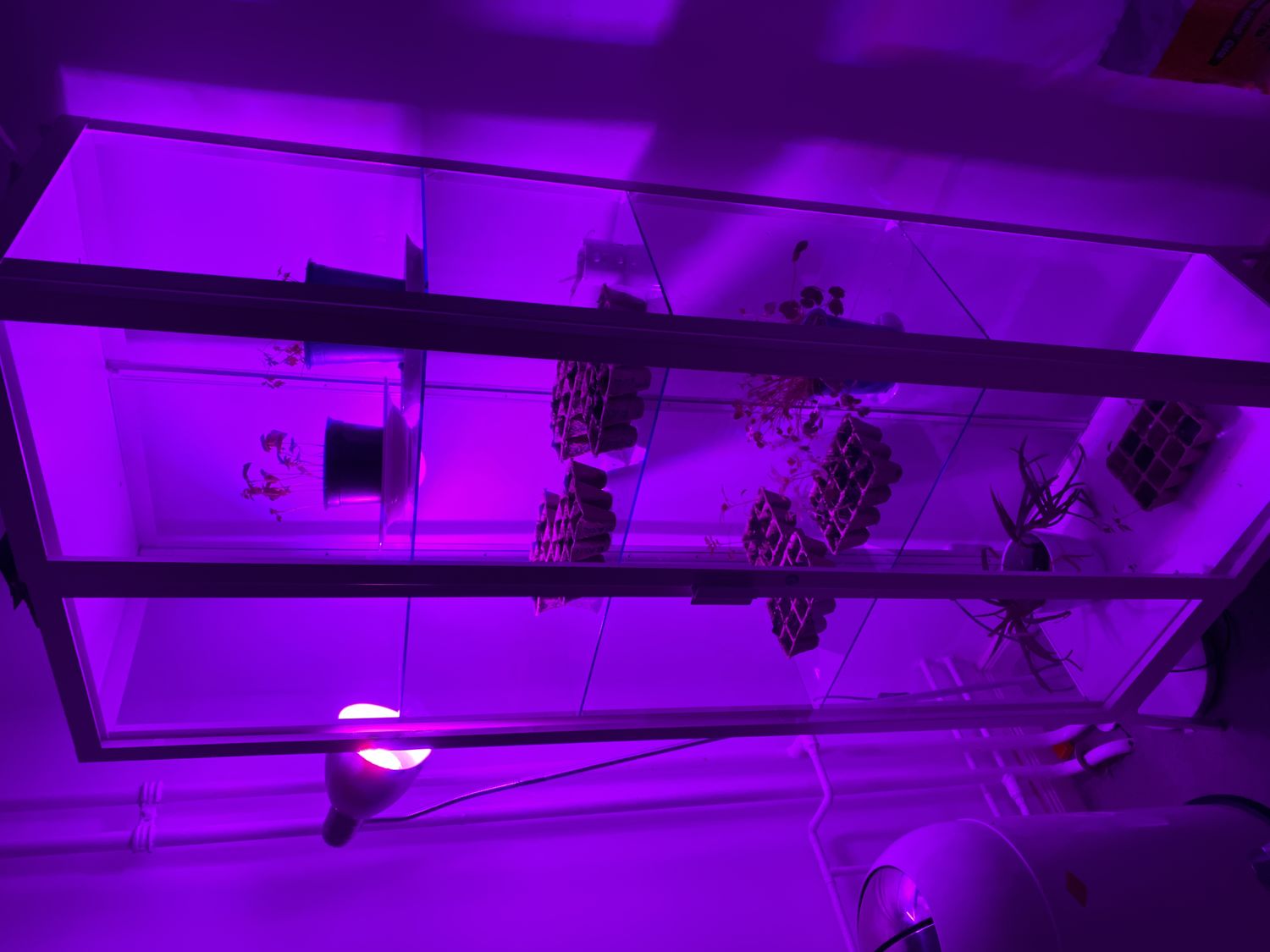
From: Rindon Johnson
Date: Monday, April 6, 2020 at 6:41 AM
To: Aram Moshayedi
Subject: Re: A start
I’m also not sure where it goes but I feel like knowing the depths that this has on people’s lives is really getting into me. Like how do we account for the surge of domestic violence cases, the confusing way that farm workers are being treated (essential labor but no benefits....being flown in to tend the fields), the never-ending confusion of the race/poverty distortion of the dying... What will this look like throughout the world? Who will die and from what preventable why?
What to do with all this fear. All subjective. The run of the mill obvious mortal fears, the government surveillance fears, the failure of health care systems to take care of the most vulnerable and then the more mundane and simple fears to the less easy to classify fears of not seeing my friends and family in the states for a long time and then this other fear (enter Jaron Lanier warning about social media): What have we done to prepare for the cyborg beings we so willingly became? I don't mean to plug Tishan's show [Tishan Hsu: Liquid Circuit] but jesus, what a great show that is, he predicted all of these possibilities of our digital selves and they were fucking right. Or rather, they rung true visually and concretely. Heavy. I really liked them. I want to see them again.
From: Aram Moshayedi
Date: Saturday, April 11, 2020 at 11:51 PM
To: Rindon Johnson
Subject: Re: A start
It’s hard to resist becoming a digital self. We’ve witnessed how quickly art and academic institutions were easily able to adapt themselves by facilitating surrogate experiences and surrogate selves that, admittedly, aren’t a substitute for anything. At least that’s what Sherrie Levine and Louise Lawler promised us about pictures; “A picture is no substitute for anything.” I wish I could take a screengrab every time a meeting ends on Zoom or FaceTime, just to show that brief moment of transition when the camera freezes and everyone in the meeting goes from being a digital picture on a screen to being alone in a room. More often than not the fear you’ve described is manifest on these faces, because we’re all more or less adapting to the daily dose of uncertainty. Empathy looms large, as does guilt.
In response to your earlier message, these issues seem very clearly about the efficacy of one’s work. For the most part, the kind of fake realism of artistic responsibility has very little bearing on life as it is lived. It has also seemed to be a precarious prompt—to ask artists how they are managing to live and work in a world of isolation. Many people were already working in a certain kind of isolation even though their work spoke to a broader idea of social responsibility. The question also seems to prioritize the work of artists over others whose jobs include treating patients, building houses, delivering food, working in grocery stores, filling online orders, doing what they can to make ends meet because they don’t have the same luxury of time or an adaptable professional skill set, and the $1200 coronavirus stimulus check won’t really solve many problems anyway. The art industry as we know it is so much about self- and wealth-preservation that it’s hard to relate in the same way. Maybe it’s a form of escapism from the current crisis culture, but I’ve found myself aspiring toward anachronism, being pulled in different historical directions as if I’m a time-travelling drunk meandering home from the bar. There is an incredible amount of pleasure that comes from this, and I wouldn’t call it a guilty pleasure. The promise of curators has tended to be one of abiding relevance. But, now, it seems an appropriate time to say, this is farce if not just a strategy for survival. I’m fortunate to be among an interesting group of people who turn me onto their own different obsessions. The personal sharing of songs, essays, films, gifs, and TikTok posts has been more life and art affirming than ever. Though they come from different sources, I imagine this accumulation of materials to be an informal archive that says a lot about the collective state of the union and the importance of non sequitur. It’s taken me some time to accept this as a research methodology because the current situation and all of its residual manifestations very easily occupy all head space. But my reality is not the same as anyone else’s. I also have a hard time imagining that anyone needs or wants to have my reality externalized in any substantial measure. Curatorially speaking, I tend to communicate through the experiences of others anyway. Admittedly, I rely on artists and writers to make sense of the world’s messiness on my behalf, but in many respects, it feels too soon and still too messy. Let us enjoy the trauma for just a bit longer. I hope this exchange isn’t contributing to the pressures I’m describing, but maybe it’s inevitable that it is?
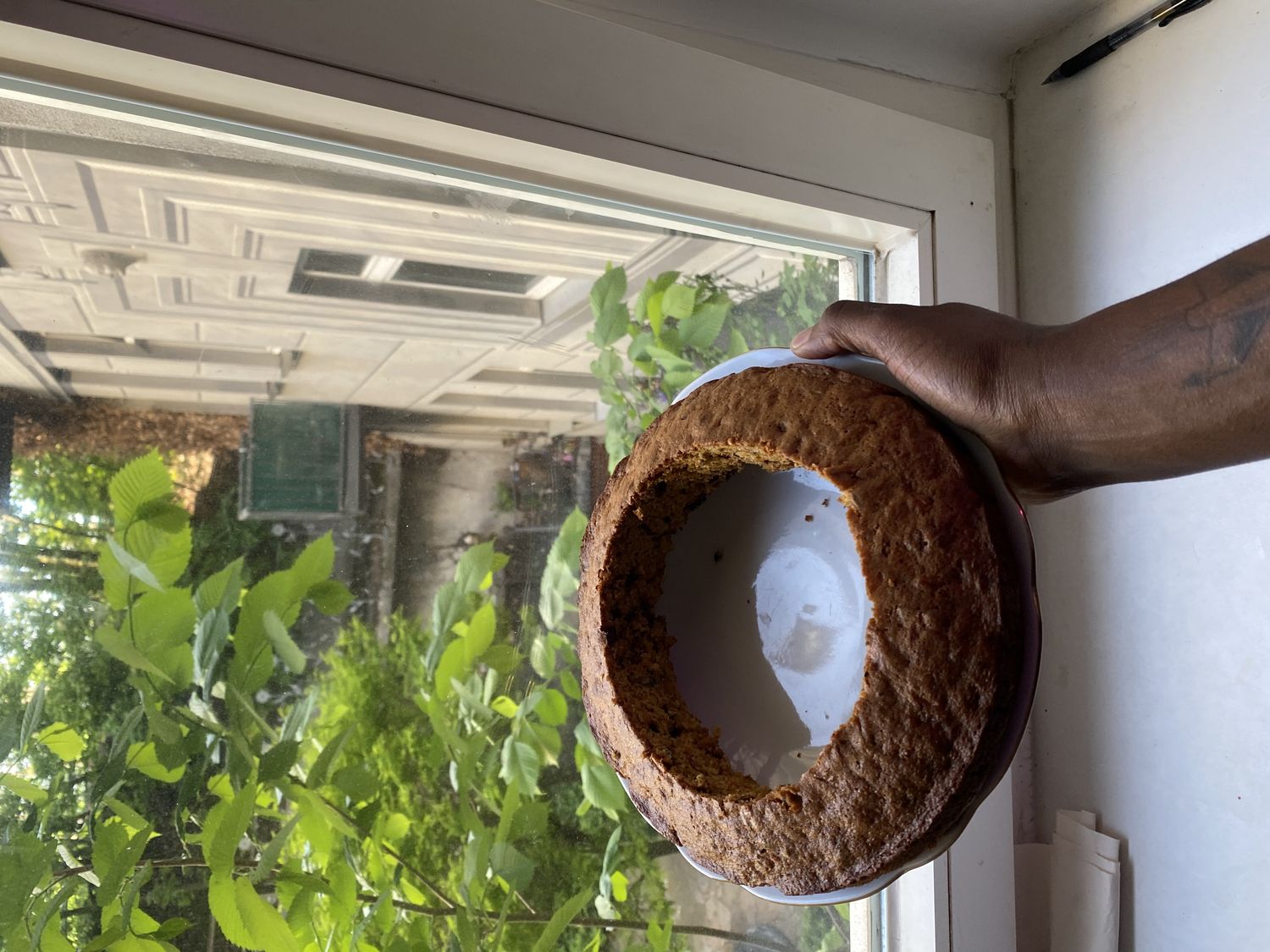
From: Rindon Johnson
Date: Friday, April 17, 2020 at 5:05am
To: Aram Moshayedi
Subject: Re: A start
No way it isn’t contributing and if it is I want it to.
Subject - Object - Subject again. You know I really cannot keep them straight anymore, I couldn’t before but now I really can’t. Messy, messy, messy. My kid watches this show called Pete the Cat. There’s one episode in which Pete’s friend who is a squirrel has squirrelled away so much stuff that she thought at one point was special but there’s so much of it she doesn’t know and can’t remember what is special anymore and then her friends all sing a song to her: “if everything is special nothing really is,” and then she cleans her room and donates the stuff she doesn’t need and it’s great. (Life is more complicated than being a cartoon squirrel, unfortunately.) I was thinking about this song which often gets stuck in my head when I was thinking about you missing non sequiturs. I was thinking too about the faux realism of art and artists, about the artists that have stopped making art because change isn’t going to come through making art.
What’s going to come, then? (A weighty nothing is a bad answer but I think it’s the best one I’ve got right now.)
I didn’t realize I was drunk at the atemporal-history-bar with you until you mentioned that’s where you were. In fact as you’ve wandered away drunk I’ve likely fallen off my stool into a black hole of great things my friends send me, cooking videos (#decolonize bonappetit), Dia artist talks, a smattering of artist documentaries, pdfs gathering dust on my computer, making paintings with daughter and books of all sorts. The archive grows in all directions and clichés manifest themselves all the time. Time really IS such a luxury isn’t it? In one of my Dia artist talks black holes I saw the one by Nick Maus and Ken Okishi on Hanne Darboven, they pointed out that Darboven was heir to the German coffee fortune, J.J. Darboven. Her work is so much about time and time between (as Nick and Ken point out). Pre-COVID, my friend Lisa took me to see Darboven’s show up in Berlin right now, she mentioned that it was going to be up for so long because it was such a monster to install. There are a lot of frames. There is a lot of writing that is intentionally not readily legible in said frames on her signature calendar form. It's actually a beautiful show in a way, but when I saw it I became so overwhelmed I wanted to dip; I kept my cool and stayed. I spent a long time thinking about it after, why I felt so inundated by Darboven’s keeping of time, it felt big and massive in a way that I didn’t fully understand, heaping. Anyway, I’m wandering around what I found so interesting about knowing that she was heir to the coffee fortune and was thinking that her take on time was (among other things) laborious and luxurious simultaneously. Nick Maus said that when Darboven figured out what her practice would be she considered it her life’s task and I thought about what Darboven’s previous life tasks must have been or maintained, like the privacy that her luxury “necessitated” or something… Ouch, my anarchist pin that we got at the bar is stabbing me in the chest and I think that the accumulation of capital that allowed for Darboven to create this big huge poem of labor-luxury time is blood soaked and how all that blood drips on the floor, like I keep both the poem and the blood in my hands at once and then I wonder what I’m supposed to say back to her: “you’re keeping time and there’s blood in your ink”? Then I got confused again because I learned something from her and I resented learning it while still being happy to have learned and felt it. (I guess there’s blood in everybody’s ink.) It’s a farce, yes. (Sometimes I (think I) need it?) There was another thing about the Darboven show, she had these posters on stands, they looked old, from the 40s or a little before. There was one where it showed a soldier and he had a little patch on his arm covering, by my best guess, a swastika. Damn that really undid the show for me. Like this patching attempt to try and ignore time or something or ignore the time of the poster, to avoid having to fully dialogue with the swastika. That little patch felt so itchy. I took a shower when I got home. Let’s see the patch, Hanne. I see the little golden memorial stones in front of the houses here. Let's see them.
From: Aram Moshayedi
Date: Saturday, April 22, 2020 at 1:52 PM
To: Rindon Johnson
Subject: Re: A start
I once asked someone—I don’t know remember who it was—how they were doing and they responded that they were just fucking their time. “I’m just fucking my time” and On Kawara’s “I am still alive” are the two refrains stuck in my head at the moment. Kawara’s death in 2014 was probably one of the hardest artist deaths to process because of his very elegant way of marking time and indicating his slight presence in the world. Suddenly, he was no longer alive, he was no longer there. I didn’t know him, but it felt like a symbolic death that also ended time. I’d like to think that time stopped when On Kawara died, but here we are waiting out our days and nights, doing what we can to pass the time in order to make it feel productive or worthwhile. The museum has retained my employment, so in addition to still receiving a paycheck, I also have structure to my days that maybe others do not. A lot of my time is spent in different forms of correspondence. This was always the case before, but it feels even more so now. There are even new messaging platforms that I’d not known about before any of this started. At first I was just “checking in” with people I thought might have a harder time navigating this new reality. Artists over the age of 65 were the recipients of my largely unsolicited inquiries, wanting to make sure they had everything they might need. What was needed? Needed for what? Needed for how long? These were questions beyond my paygrade. To offer amateur assistance during a pandemic is an empty gesture—the best anyone can do is stay away. So calls, emails, and messages of every sort will have to do for now. But I have noticed that the tolerance for any form of communication is wearing thin. Zoom is my doom. I, for one, am digitally estranged, while I’ve also watched the world become smaller and more local despite the improved resolution of, say, FaceTime video. This is a technocratic wet dream and a misanthrope’s worst nightmare. I spoke to an artist in Berlin recently—an unsolicited call to make sure he was alright even though he’s far from 65—who said he didn’t realize how much he’d come to rely on the people that annoyed him in his day-to-day routines. I recently read Thomas Bernhard’s Old Masters, so this really resonated with me. In Old Masters, Reger’s greatest pleasures come from what he finds the most abhorrent, and this definitely includes people. I bring this up also because you may have read or seen images of the protests against stay-at-home orders. Never in my life have I felt less affection and less of a desire to communicate. With this group of people it seems the question of efficacy reaches its most absurd conclusion. What’s going to come for them? We tend to have quieter, slighter voices, and I really appreciate that. But I’ve also grown tired of this sickening feeling that I get every time I see their disgusting bloated faces colored by rosacea, disdain, and some textbook idea of liberty. But I also don’t know what weapons we have, or if it’s still enough to retreat or think we’ll outwit them.
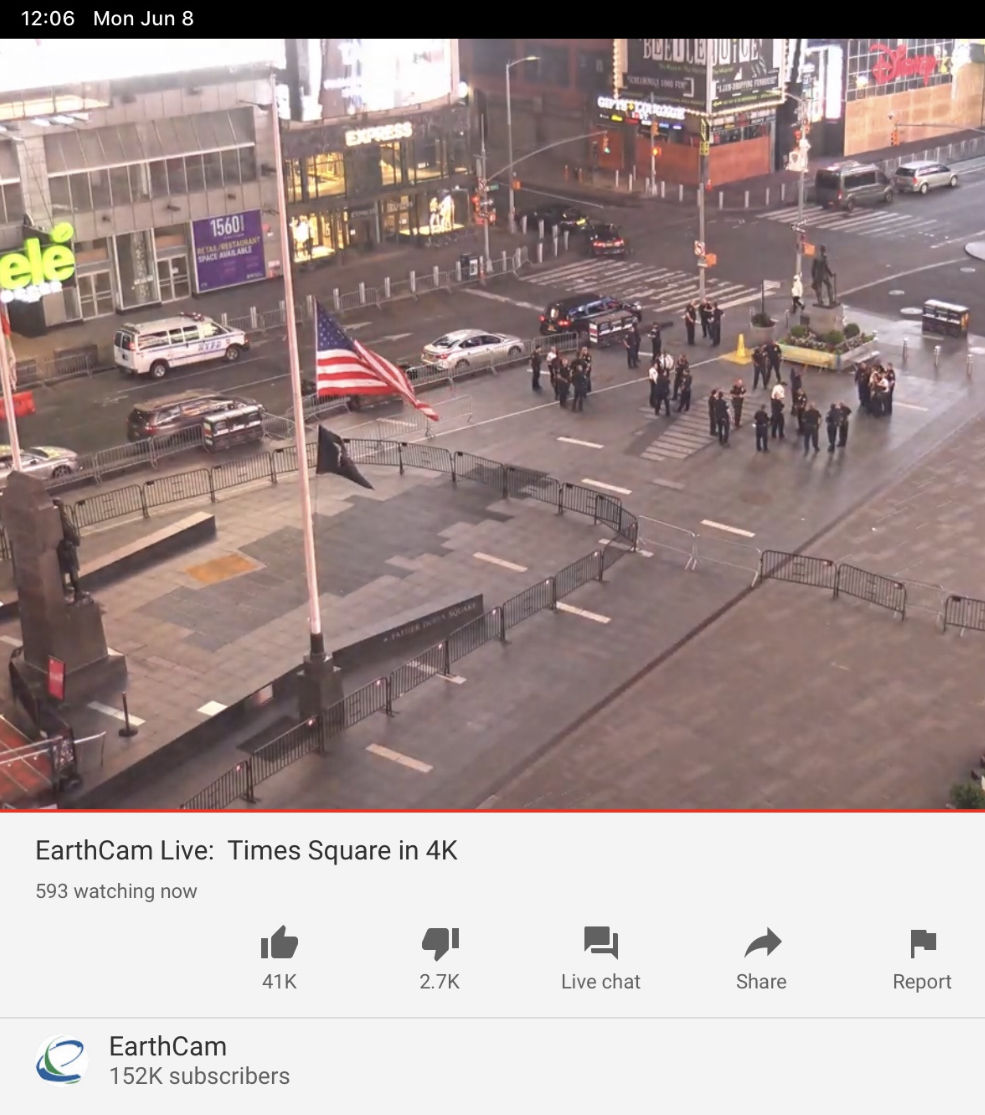
From: Rindon Johnson
Date: Monday, April 30, 2020 at 11:43 AM
To: Aram Moshayedi
Subject: Re: A start
I said yes so many times reading your last email. Sometimes a yes can really slow me down. Anyway, a hoard of MAGA zombies can knock the wind out of basically any argument. My whole body shriveled up at the sight of those American Zombies. How much of my life will I spend trying to articulate the absurdity of being a Black American and feeling oddly in relation to those knuckleheads, or having by consequence of birth been forced into relation to them? No thank you but yes I am happy to have been born. It has been on my mind quite often that the only way to meet absurd is with deeper absurd because the absurd absorbs anything that is not itself, what would it do with a self it cannot integrate into the self that it recognizes as self? It's a useless question I guess because I'm not going to go full earth-parent zombie and I think I'd be quite scared if people I know went full zombie to fight the MAGA Zombies... So what now? How many questions will I ask until I have asked myself back to the beginning?
This will date me but I guess that's acceptable considering that as an artist I’m kind of dated automatically, and also birth located which I always thought was funny, like so readily rendering us products (Ah yes, this Rindon Johnson is a 1990 from San Francisco, perfect, he drinks like a dream!) Anyway, I used to love that Green Day song “Nice Guys Finish Last,” until I actually thought about it and how a cliché just screamed for the pleasure of a 10-year-old eventually becomes an annoying confrontation that they have to have about living and being alive. I mean here we are, nice enough, quiet enough and what comes to the quiet? I can't stop thinking about how when asked about what a young artist might do in relation to climate change (or something like this, my memory lives in its own reality) Agnes Denes was just like if you want to change the world you're in the wrong business. So many artists say that it's almost a cliché to say it. Then I think about Charlotte Posenenske, she dipped, lots of people dipped and lots of people couldn’t even see how to get in. You'd have to be half crazy or self-absorbed or cash laden to be so into a farce, right? There is a selfishness to what I'm doing and have done, there's poetry here and poetry does its bidding when it is called up to do so but a lot of time I think could I have been of service in another way? And here we are again on the treadmill of my own shit...
The list of the usual things that keep me up at night keeps growing. The Climate Crisis usually did such a good job of it for some reason I didn't think that my fears could get any more specific but they have. I cannot see into the black pool of greed, I know it goes deeper than I could ever fathom but just the idea that everything that we need to change our reality already exists, yet the change does not come. I'm clearly missing something. There's something that I'm not understanding about relation to other beings. Maybe it's nicer to say there was a track, lots of people did things that were unkind to other beings and the planet and now we're here. I mean I guess we're back to the Zombies. It makes me really angry; those Zombies, what are they implying about people that are at a higher risk to catch and pass from COVID, that they're less people?
Hubris.
Ya know Walter Benjamin's "now-time"? Like how history exists in its own specific now time. What kind of layers of time are we at right now? What is our now time and how will we respond to it? I find myself waking up in the middle of the night dreaming that California secedes, that maybe a good chunk of the US just finally splits (spits) itself up and calls it day. I wish I could fuck my time. I'm bad at fucking. I've been watching The Great British Bake Off, I guess that's a fuck, it is impossible to make a good sponge... I find myself easily distracted to do one thing or another thing. Things somehow keep popping up so in that way I'm lucky that there are things even able to pop up. My kid forces a rhythm on us, no sleeping in, can't stay up too late or we'll pay for it. Here in Berlin things are so different from the states, we've begun to reopen, slowly, cautiously, it might not last and the excitement, it's confusing. I'll get let back into my studio at the University on Monday if you can believe it, I'm just a researcher, that seems a bit crazy but it isn't because they're tracking it, I mean us. I'll get to work on my paintings and do shit in VR. From my window right now I'm watching people drink beer in puffy vests and it's spring time here and it is starting to look similar to many spring times I've had here, save for the masks in the stores and this kind of high pitch ringing in all of our ears. Don't get too close. How are they tracking us, again? Will they keep tracking us forever, for our own good? How many things will I let slide until so much has slid there's just a flat plane of surveillance?
From: Rindon Johnson
Date: Friday, June 19, 2020 at 3:46 PM
To: Aram Moshayedi
Subject: Juneteenth
Without consulting a calendar, I think it has been almost two months since we took our writing to one another off the record. For most for that time I’ll admit I have been here in Berlin looking out my studio window listening to the bird song and hearing in my mind the chants of those Americans who are able to demonstrate their recognition of my personhood by placing their bodies in the street day after day, to be counted, to make noise, and to demand a different way of going about things. I have been proud of those who are protesting in that way, proud of those who protest in other ways, and then seriously hurt by those who “just cannot engage” with any sort of protest despite their physical ability to do so. This hurt has been weighing on me and keeping me up at night. I called them my friends, I think to myself, as I play out our friendship with the icky Bono-yellow overtones of their inability to engage with what my life actually looks like. I think of my face on their Instagram, my daughter’s image in their phones. I can’t shake someone’s shoulders and tell them I’m a person, and it’s not my job to tell them to show the fuck up. To realize that I have been tokenized by people who I have let into the crannies of my heart and sometimes my body makes me furious and tired but I cannot sleep. I can hear my mother saying I told you so, she never sleeps. I was saying yesterday on the phone how frustrating it is to be constantly standing on the edge of a cliff and to suddenly have all these knuckleheads behind me being like, wow this is quite the cliff you’ve been standing on your whole life. If someone didn’t see the cliff before I’m not sure I give a shit if they’re just seeing the cliff now. I keep thinking about that thing you said about representation: So many people fought so hard to be even seen. The visibility is everything and it stays sinister, because once you’re seen then what? The exploitation continues in different forms, to be seen means...reifying a particular capital distribution, but it also means legislation, protection...from what and who...Jordan says on the phone, burn it all down. Black and Trans*******, holding both things in my hands, more killing, actual lynching, and then pledges for change, pledges for reexamination. Pledge my ass. Pledges give me fury. I want change in the US and everywhere, but I left the US and kind of everywhere because I couldn’t take it there (here) anymore, you can’t leave and you can’t come back. I got the news alert about DACA and I was happy but also angry anybody was ever undocumented in the first place, how is it that we live in a world where I can construct multiple selves with a computer, my dog can have an EU passport, and legislation can still render people as non-existent? Burn it down. I got the news alert about trans rights too, also good. I ask Sohrab if he’s excited about something and he says, that’s not how I roll, I laugh, I miss him, and I understand. In the midst of all of this did you hear they said the pipeline under the Appalachian trail could go ahead? This mud that my face is in tastes so disgusting, I am so used to it, do we all like the taste of the mud? I wasn’t sure what to say, about all of this, I’m still not. I wish we didn’t have to talk about any of this. I have so many other things to say. I hope you’re doing alright in that overnight police city-state. I miss California. The birds keep singing here in Berlin, they’re so loud. The sun never really goes down here, the sky is always a kind of ready blue, and it’s so hot these days, sliding thru the city, catching glances. It just stopped being Juneteenth here and it still is where you are. I remain (hopeful, groggy, suspicious). I can hear the S-Bahn from the kitchen window, it’ll come back around.
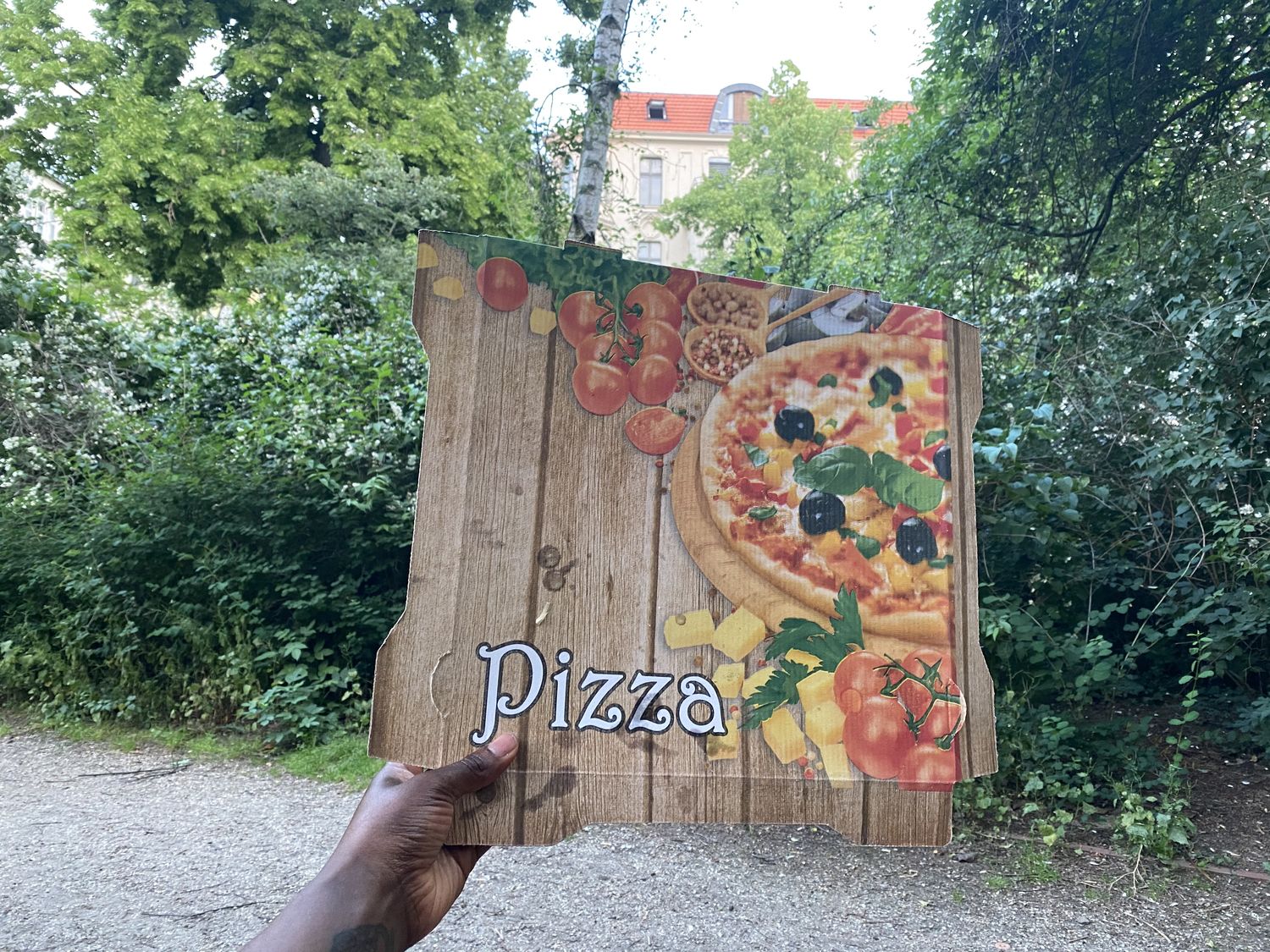
Aram Moshayedi is the Robert Soros Curator at the Hammer Museum.
Rindon Johnson is an artist and writer. His most recent virtual reality film, Meat Growers: A Love Story, was commissioned by Rhizome and Tentacular. Johnson has read, exhibited and lectured internationally. He is the author of Nobody Sleeps Better Than White People (Inpatient, 2016), the VR book, Meet in the Corner (Publishing-House.Me, 2017) and Shade the King (Capricious, 2017). He lives in Berlin where he is an Associate Fellow at the Universität der Künste Berlin; he studies VR. In winter 2021, Johnson will open a solo exhibition at SculptureCenter, New York.




